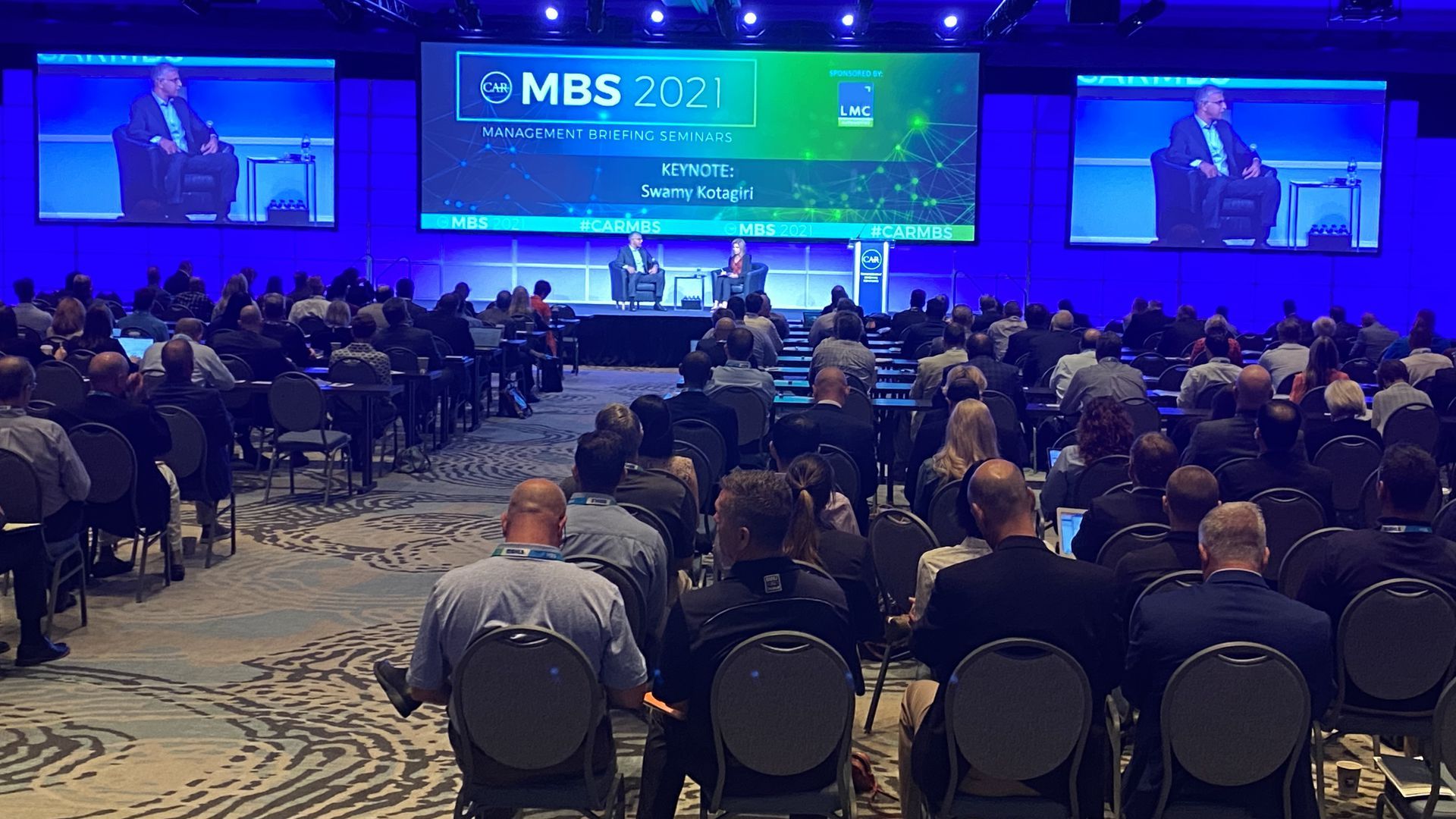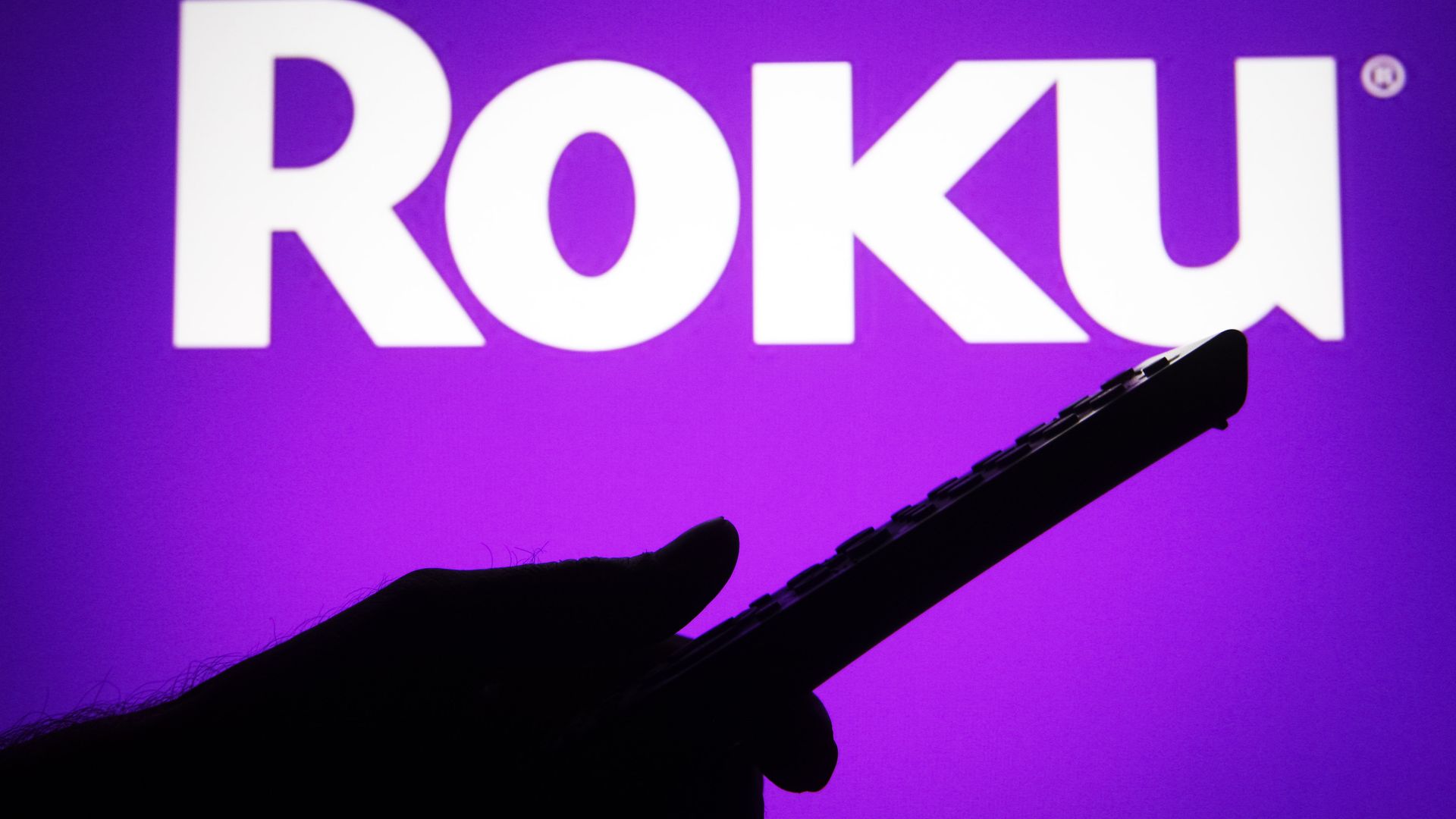| | | | | | | Presented By General Motors | | | | Axios What's Next | | By Bryan Walsh, Jennifer A. Kingson, Erica Pandey and Joann Muller ·Aug 05, 2021 | | Thursday appears in few great song titles, but we have the rise in U.S. citizenship renunciations, the cyberattack risks of remote work and the state of live conferences. "What was next" trivia: On this day in 1861, President Abraham Lincoln instituted the first kind of what tax? 💸 - Credit to reader Stefani Koorey for being the first to note that the U.S. purchased the Virgin Islands on Aug. 4, 1916, thus paving the way for roughly 5,000 Tim Duncan bank shots.
- Send your answer, along with tips and feedback, to whatsnext@axios.com.
Today's Smart Brevity™ count: 1,405 words ... 5 minutes | | | | | | 1 big thing: The wealthy Americans becoming ex-American |  Reproduced from Andrew Mitchel LLC; Chart: Axios Visuals The number of Americans who renounced their citizenship in favor of a foreign country hit an all-time high in 2020: 6,707, a 237% increase over 2019, Jennifer Kingson writes. - While the numbers are down this year, that's probably because many U.S. embassies and consulates remain closed for COVID-19, and taking this grave step requires taking an oath in front of a State Department officer.
Why it matters: The people who flee tend to be ultra-wealthy, and many of them are seeking to reduce their tax burden. New tax and estate measures proposed by the Biden administration could, if implemented, accelerate this trend. The big picture: Only the U.S. and Eritrea tax people based on citizenship rather than residency. For most countries, if you are a citizen but don't reside there, you aren't taxed in that country. Where it stands: The IRS publishes a quarterly list of the names of people who have renounced their citizenship or given up their green cards, but it only includes people with global assets over $2 million. - The numbers started swelling in 2010, when Congress passed the Foreign Account Tax Compliance Act, or FATCA, which increased reporting requirements and penalties for expats.
- FATCA "kind of flushed people out of the bushes," says Andrew Mitchel, an international tax lawyer based in Connecticut who tracks the numbers. It "effectively deputized all the banks around the world to tattletale on U.S. citizens."
- But the Wall Street Journal discovered that the lists aren't up to date: A lot of people who were reported to have renounced citizenship in 2020 actually did so years earlier.
- "It's not as if the latest quarter names that have come out are indicative of the current political environment or anything like that," Mitchel tells Axios.
What they're saying: David Lesperance, an international tax lawyer based in Poland who specializes in helping people renounce U.S. citizenship, says that with coronavirus shutting down interviews for renunciation, the next lists will only contain relinquished green card holders, who can do it by mail. - "There are probably 20,000 or 30,000 people who want to do this, but they can't get the appointment," Lesperance said. "There's not a peak demand — the system's capacity has peaked."
- "It's a year-and-a-half to get an appointment at a Canadian embassy," he tells Axios. "Bern [Switzerland] alone has a backlog of over 300 cases."
- Lesperance, who has been helping people renounce citizenship for 30 years, says the pandemic has made it hard to help clients navigate the lengthy and complicated process, which involves first getting citizenship in another country.
Read the rest |     | | | | | | 2. How remote work raises the risk of cyberattacks |  | | | Illustration: Aïda Amer/Axios | | | | The pandemic-driven shift to remote work has been accompanied by a rise in cyberattacks on corporations — and that's not a coincidence, Bryan Walsh writes. Why it matters: Cyberattacks can cost companies millions and the broader economy billions. With remote work likely to stay — especially with the surging Delta variants — companies need to prioritize and retool cyberdefense for a more distributed working world. By the numbers: Between 2019 and 2020, ransomware cyberattacks rose 62% worldwide and 158% in North America, according to a recent report by the cybersecurity firm SonicWall. The big picture: There are a number of factors behind the ransomware wave, including the rising value of cryptocurrency, but "it's not a coincidence that there are never-before-seen amounts of ransomware attacks happening exactly as shutdowns forced people to go remote," says Paul Martini, CEO of the cloud cybersecurity company iboss. Between the lines: By one estimate, almost 90% of cyberattacks are caused by human error, often non-IT employees who unintentionally expose their company to bad actors. - When employees primarily worked in the office, IT departments could build a fortress that could protect workers — and the data they needed — from themselves.
- "But now that they're working from home, they're connected to a highly untrusted network," says Martini. "This fortress and this technology [IT departments] have built to scan data is completely irrelevant because the data is not going through that equipment."
The bottom line: Martini argues that since cloud computing undergirds remote work, companies need to take a cloud approach to cyberdefense, to ensure that security can follow data wherever it goes. Read the rest |     | | | | | | 3. What it's like to go to an in-person conference during Delta |  | | | About 500 people attended the big auto industry conference in Traverse City, Mich. Photo: Katie Ramsburgh, Center for Automotive Research | | | | This week I'm attending my first professional conference in 18 months, but unfortunately, I'm afraid it might be my last for a while, Joann Muller writes. Why it matters: COVID-19 cases are surging again, driven by the highly contagious Delta variant, triggering a sudden tightening of corporate travel policies and raising serious doubts about in-person conferences and events. Driving the news: Just yesterday, the twice-delayed New York auto show — which had been scheduled to open to the public on Aug. 20 — was canceled due to rising public health concerns. What's happening: I'm in Traverse City, Michigan, this week for the annual Management Briefing Seminars sponsored by the Center for Automotive Research. - The Centers for Disease Control has coded Grand Traverse County "orange" — meaning "substantial levels of community transmission," which is no surprise since it is a popular tourist destination in northern Michigan.
- "We feel really lucky with our timing," CAR spokeswoman Katie Ramsburgh told me. "With the COVID-19 Delta surge, if our event had been a few weeks later, we may have had to flip it to virtual."
- As it is, the event is "hybrid," with about 500 attendees in person and 200 participating virtually, compared to 800-900 in-person during previous years.
- I moderated a conversation on how automated vehicles could improve transportation equity. Three of the panelists were on stage with me, while the fourth Zoomed in remotely after deciding at the last minute not to travel.
What I'm seeing: The vast majority of attendees are not wearing masks, and there's no way to know whether they are vaccinated or not. - The check-in process was simple and almost contactless: I found my name on a tablet, clicked "check-in" and my name tag printed automatically.
- Red and green stickers were available indicating "handshakes ok" or "not ready for handshakes." (I opted for "not ready.")
- Lunch buffets were replaced with plated meals or boxed lunches for those who felt more comfortable eating separately.
- A female vice president at a major auto supplier told me: "I'm feeling weirdly anxious. I don't know how to act around people. I'm wearing my first pants without elastic around the waist."
Read the rest |     | | | | | | A message from General Motors | | Progress moves when everybody's in | | |  | | | | General Motors is investing $35 billion globally in EVs and AVs through 2025 and offering access to nearly 60,000 places to charge across the U.S. and Canada. Why it's important: By creating a seamless charging experience, GM's investment is electrifying the future. | | | | | | 4. Americans' climate action disconnect |  Data: Yale Program on Climate Change Communication/George Mason University Center for Climate Change Communication; Chart: Will Chase/Axios Despite a widespread recognition among a majority of Americans that climate change is a problem, and a willingness to take actions to combat it, there's a large gulf between what people say they would be willing to do and what they are actually doing, Andrew Freedman writes. Why it matters: This finding, from a new polling analysis conducted by climate opinion researchers at Yale University and George Mason, suggests there's considerable room for expanding the climate movement beyond current activists. Details: For example, about half of Americans said they would sign a petition about global warming, but only 15% said they have done so at least once in the past year. - In addition, about 33% said they would donate money to an organization working on global warming, while only 13% said they have done so in the past year.
- About 30% of Americans say they are "definitely" or "probably" willing to join a campaign to get elected officials to act to reduce global warming, yet only 1% of Americans say they are currently participating in such an effort.
The poll has an average margin of error of plus or minus 3 percentage points. Share this story |     | | | | | | 5. Number of the day: 1 billion hours |  | | | Photo Illustration: Pavlo Gonchar/SOPA Images/LightRocket via Getty Images | | | | That's how much total time streaming on Roku players declined between the first and second quarters of 2021, the company announced in its earnings release yesterday, Bryan writes. What they're saying: The company blamed "increased out-of-home entertainment activities (such as dining and travel) in Q2 as a result of pent-up demand and the loosening of COVID-19 restrictions." - In other words, once we could do almost anything else, we stopped streaming as much TV.
- The company still posted record revenue growth of 81% year-on-year.
Context: Roku isn't the only streaming player that slowed down along with COVID-19. - In Q2, Netflix — whose CEO Reed Hastings famously said that the company's biggest competitor was "sleep" — added the fewest number of new subscribers in years.
What to watch: Less streaming TV, apparently — though with the Delta variant surging, we may soon find ourselves camped back in front of a screen, 2020-style. |     | | | | | | A message from General Motors | | Progress moves when everybody's in | | |  | | | | General Motors is investing $35 billion globally in EVs and AVs through 2025 and offering access to nearly 60,000 places to charge across the U.S. and Canada. Why it's important: By creating a seamless charging experience, GM's investment is electrifying the future. | | | | Thanks for reading! If this email was forwarded to you, subscribe here! |  | | It'll help you deliver employee communications more effectively. | | | | | | Axios thanks our partners for supporting our newsletters. If you're interested in advertising, learn more here.
Sponsorship has no influence on editorial content. Axios, 3100 Clarendon Blvd, Suite 1300, Arlington VA 22201 | | | You received this email because you signed up for newsletters from Axios.
Change your preferences or unsubscribe here. | | | Was this email forwarded to you?
Sign up now to get Axios in your inbox. | | | | Follow Axios on social media:    | | | | | |
No comments:
Post a Comment